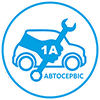Development and Creation of a Website for a Logistics Company
Modern service providers cannot operate without having their own website. There are several simple reasons for this. A web resource helps clients find the right company and obtain additional information about its services. It is difficult to imagine promoting services without using online tools.
How to Choose a Website for Your Company
Web pages on the internet always contain useful information for readers, but the variety of options does not depend on the content alone. On the contrary, creating a logistics company website serves the goals set by the provider. Once you determine what you want from your online resource, it becomes easier to make the right choice. Today, the most popular types of websites include:
- Corporate website. Contains all information about the company’s operations. The team structure, list of services offered, pricing policy, and other details help introduce potential clients to the business.
- Business card website. This type of site is suitable for small companies. Unlike the corporate website, it provides useful information without detailed descriptions. Usually, one page is enough to introduce a potential customer.
- Landing page. This is also a one-page site used to promote a specific service. The information on the page helps clients understand the benefits of ordering from your company.
A business card website can be gradually expanded and supplemented. A landing page does not provide this option since its purpose is to popularize a specific service.
What Should Be on a Logistics Company Website
Building an online reputation starts with creating a website. To achieve this, developers at Romanow Web Studio add important sections to the pages. By reviewing the content, clients can more easily place an order. A corporate page enhances trust in the service provider.
Company Information
Introducing potential clients to the business is crucial. Readers study the information to ensure reliability. To prevent difficulties in this regard, include the following details on your pages:
- The company’s purpose, with key dates;
- Team composition, indicating positions and tenure;
- Awards received over the course of professional activities;
- Client reviews (preferably with company names);
- Photos of work processes or completed orders.
Efforts to connect with potential clients are rewarded with increased loyalty.
Legal Documents
Confirming that the company provides legitimate services is important from the outset. This ensures that clients do not have additional questions about the legality of the services ordered. It is an investment in the company’s growth.
Fleet
A logistics company offers a wide range of options for fulfilling orders. Photos of the fleet help highlight your capabilities and reassure clients that vehicles are selected according to the task at hand.
Services and Pricing
No website is complete without a list of services. Customers need to know what tasks you perform. A detailed explanation of each service is necessary so that clients understand what is being offered.
Pricing principles are also essential. Such information is useful for users comparing multiple logistics companies. Clear descriptions of services and pricing attract attention. Additionally, this section helps emphasize competitive advantages that aid in promoting service offerings.
Contact Information
Clients need to know how to place an order and get answers to their questions. Contact details should be displayed in additional sections or on a separate page. In some cases, contact options should be available on every page.
Corporate Website Development for a Logistics Company
Website layout does not begin immediately. To achieve the desired results, proper preparation is necessary. The experts at Romanow Web Studio have developed several principles used during development. The project workflow includes:
- Market research. At this stage, specialists identify the main competitors in the industry and conduct preliminary analysis. This allows them to determine competitive advantages and strategically position them on the final website.
- Preliminary structure planning. Developing a logistics company website requires attention to detail. A structured presentation of information helps guide potential clients through the sales funnel.
- Selecting a content management system (CMS). There are four main types of CMS, each with its own advantages and disadvantages. Discussing website usage goals helps determine the best solution for your needs.
- Testing the initial website. During functionality and technical capability checks, any errors are corrected. This simplifies and speeds up the project’s launch.
Lack of experience in developing logistics company websites can lead to various issues. That is why it is essential to turn to professionals. The team at Romanow Web Studio can help create an appealing website with user-friendly management, ensuring clients do not encounter difficulties while using it.
Our contacts:
The main services offered by Romanow Web Studio:
You can click on each type of service to learn more about its capabilities.








